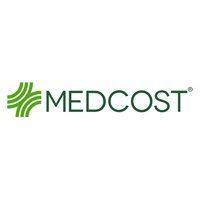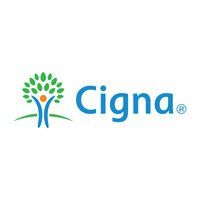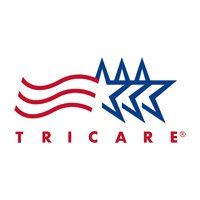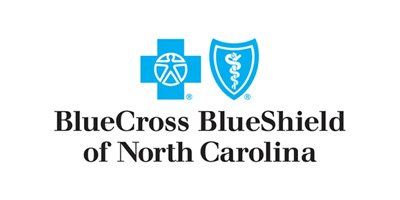What’s The Difference Between TMS and Medication for Depression?

What’s The Difference Between TMS and Medication for Depression?
If you’ve been living with depression and have tried different medications without much relief, it’s completely normal to feel tired, frustrated, or even hopeless. You might find yourself asking, “Why isn’t this working?” or wondering, “Is it just me who feels this way?” Those feelings are valid, and many people go through the same struggles.
The truth is, depression can be complicated, and medication doesn’t always fix everything on its own. Lots of people don’t get the results they hope for just by taking antidepressants. That’s why at the North Carolina Institute of Advanced NeuroHealth, we understand how important it is to offer other treatment options that can make a real difference—especially when nothing else seems to help.
One of those options is TMS therapy, a treatment that uses gentle magnetic pulses to target the parts of the brain involved in depression. It’s a different approach that’s helped many people feel better when medication alone wasn’t enough.
If you’re feeling stuck or unsure about what to try next, it can help to learn more about how medication and TMS therapy work.
How Antidepressants Help …And Why They Sometimes Don’t
Antidepressants are often the first treatment doctors recommend when someone is dealing with depression. These medications are designed to adjust the levels of certain brain chemicals—like serotonin, dopamine, or norepinephrine—that help regulate mood, energy, and emotions. When they work, people often describe feeling like they can finally breathe again. The weight lifts, their thinking clears, and they begin to feel more like themselves.
For some, this is enough. Medication makes a big difference—they feel more in control, more hopeful, and better able to manage daily life. But for others, maybe even you, the story looks different. The relief never comes, or it fades too quickly. You might have tried one medication after another, adjusting doses, switching prescriptions, hoping that the next one will be the right fit. After two, three, or even four tries, it’s easy to feel discouraged, drained, or like nothing is ever going to work.
This experience is known as treatment-resistant depression, and it’s more common than you might think. It doesn’t mean your depression is untreatable. It doesn’t mean something is wrong with you or that you haven’t tried hard enough. And it definitely doesn’t mean you’re out of options.
It simply means your brain might need a different kind of support. There are other ways to treat depression—ways that don’t rely on medication alone. Exploring those options, like TMS therapy, could open the door to the kind of relief you’ve been hoping for. You deserve to feel better, and with the right approach, healing is possible.
Understanding TMS Therapy?
TMS stands for Transcranial Magnetic Stimulation. That might sound complicated, but it’s actually a simple, safe, and non-invasive treatment that uses gentle magnetic pulses to stimulate areas of your brain that help control mood.
Think of it this way: when you’re depressed, certain parts of your brain are "turned down" or underactive. TMS helps "wake up" those areas and get them working again. This can improve how you think, feel, sleep, and connect with others.
TMS is done in a quiet, comfortable office setting. You’re fully awake, there are no needles, and no medication is involved. Most people sit in a chair, feel a light tapping sensation on their head, and go about their day afterward. Sessions are usually 20–40 minutes, several days a week for a few weeks.
TMS or Medication: What’s the Difference?
Here’s a quick comparison to help you understand the main differences:
| Medication Management | TMS | |
|---|---|---|
| How it Works | Changes brain chemicals through pills | Stimulates underactive brain areas with magnetic pulses |
| Side Effects | May include weight gain, fatigue, sleep issues, or nausea | Usually mild, like scalp discomfort or headache |
| Daily Routine | Must take pills daily, sometimes for years | 20–40 minute sessions, a few times a week |
| Who's it For | Often first option doctors try | Great for those who haven’t improved with meds |
Real People, Real Relief
At our clinic in Apex, NC, we’ve seen so many people walk through our doors feeling hopeless—like nothing has worked, and they’re just trying to survive each day.
And we’ve also seen those same people walk out smiling, saying things like:
- “I finally feel like myself again.”
- “I didn’t know I could feel this normal.”
- “I wish I had tried this sooner.”
TMS is not a magic switch, but for the right person, it can be life-changing.
So… Which One Is Right for You?
There’s no one-size-fits-all answer.
Some people do well with medication. Others need TMS.
Some benefit most from a combination of both, plus therapy and lifestyle support.
At the North Carolina Institute of Advanced NeuroHealth, we take the time to really listen to you. We don’t rush you into a treatment that isn’t right. We look at your full story—what you’ve tried, how you’ve felt, and what your goals are and build a plan that fits you.
You deserve a treatment that works. You deserve to feel better.
You’re Not Alone And You Don’t Have to Keep Struggling
Living with depression that doesn’t respond to meds can feel exhausting and lonely. But there is hope and help.
If you’re curious about TMS, or just want someone to talk to about what’s next, we’re here. Let’s explore your options together.
We’re located in Apex, NC and serve the surrounding communities with care that’s compassionate, cutting-edge, and completely focused on you.





















